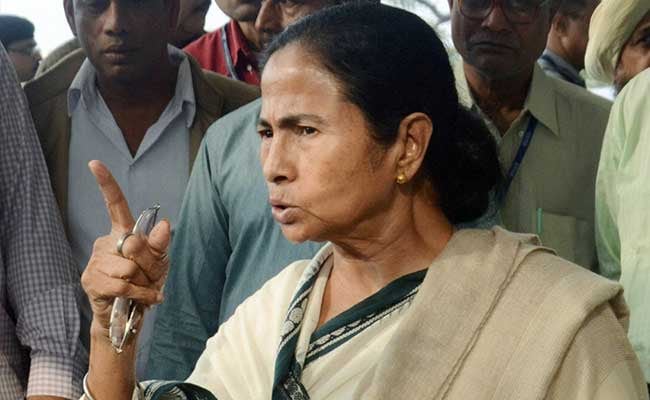
Mamata Banerjee, who is not in favour of Teesta pact, said government should look at other rivers
New Delhi:
Expressing anxiousness over West Bengal Chief Minister Mamata Banerjee's reaction on the Teesta water pact proposal, Bangladesh Prime Minister Sheikh Hasina today said that common water resources will act as a uniting force between India and Bangladesh.
"I don't know what 'didi' (Mamata Banerjee) will do. Had a talk with didi, she put forward something new. But Modiji has given the assurance that he is there to see what happens," said Ms Hasina.
While Prime Minister Narendra Modi hoped for an early signing of the pact, Mamata Banerjee, who is not in favour of Teesta water sharing, said the government should look at other rivers to share water with Bangladesh.
On electricity, Ms Hasina said, "Paani mangaa to electricity mila. Laykin electricity milaa achha hai kutch toh mila naa (We asked for water but got electricity; thankfully we got something)."
Reiterating Prime Minister Narendra Modi's resolve to conclude the water-sharing treaty as soon as possible, she said, "We strongly believe our common water resources must act as a uniting force. A comprehensive, basin-wide solution with an in-built solution to water sharing of all common rivers holds key to our common future."
"Once it happens, the phase of Indo-Bangladesh relations will undergo another transformation," she said.
The Teesta deal was originally to be signed during then Prime Minister Manmohan Singh's visit to Bangladesh in September 2011, but was postponed at the last minute due to objections by Ms Banerjee.
Teesta waters are crucial for Bangladesh, especially in the leanest period from December to March when the water flow often temporarily comes down to less than 1,000 cusecs from 5,000 cusecs.
Ms Hasina also asserted that her government has comprehensively addressed India's security concerns, which was a factor in building trust.
"We have put in place a multi-layered and effective bilateral security architecture with many dedicated joint institutional mechanisms for targeted and coordinated actions," she said.
She added that Bangladesh is looking to open more trade channels with India, widen footprint of border haats and open up routes that were closed during the 1965 war.
She said the Indian business community can take full advantage of Bangladesh's steady economic growth, high demographic dividend, low business cost and large consumer base, noting that "to facilitate further investments, a 'One Stop Service Act' is currently being finalised".
"I don't know what 'didi' (Mamata Banerjee) will do. Had a talk with didi, she put forward something new. But Modiji has given the assurance that he is there to see what happens," said Ms Hasina.
While Prime Minister Narendra Modi hoped for an early signing of the pact, Mamata Banerjee, who is not in favour of Teesta water sharing, said the government should look at other rivers to share water with Bangladesh.
On electricity, Ms Hasina said, "Paani mangaa to electricity mila. Laykin electricity milaa achha hai kutch toh mila naa (We asked for water but got electricity; thankfully we got something)."
Reiterating Prime Minister Narendra Modi's resolve to conclude the water-sharing treaty as soon as possible, she said, "We strongly believe our common water resources must act as a uniting force. A comprehensive, basin-wide solution with an in-built solution to water sharing of all common rivers holds key to our common future."
"Once it happens, the phase of Indo-Bangladesh relations will undergo another transformation," she said.
The Teesta deal was originally to be signed during then Prime Minister Manmohan Singh's visit to Bangladesh in September 2011, but was postponed at the last minute due to objections by Ms Banerjee.
Teesta waters are crucial for Bangladesh, especially in the leanest period from December to March when the water flow often temporarily comes down to less than 1,000 cusecs from 5,000 cusecs.
Ms Hasina also asserted that her government has comprehensively addressed India's security concerns, which was a factor in building trust.
"We have put in place a multi-layered and effective bilateral security architecture with many dedicated joint institutional mechanisms for targeted and coordinated actions," she said.
She added that Bangladesh is looking to open more trade channels with India, widen footprint of border haats and open up routes that were closed during the 1965 war.
She said the Indian business community can take full advantage of Bangladesh's steady economic growth, high demographic dividend, low business cost and large consumer base, noting that "to facilitate further investments, a 'One Stop Service Act' is currently being finalised".
Track Latest News Live on NDTV.com and get news updates from India and around the world

